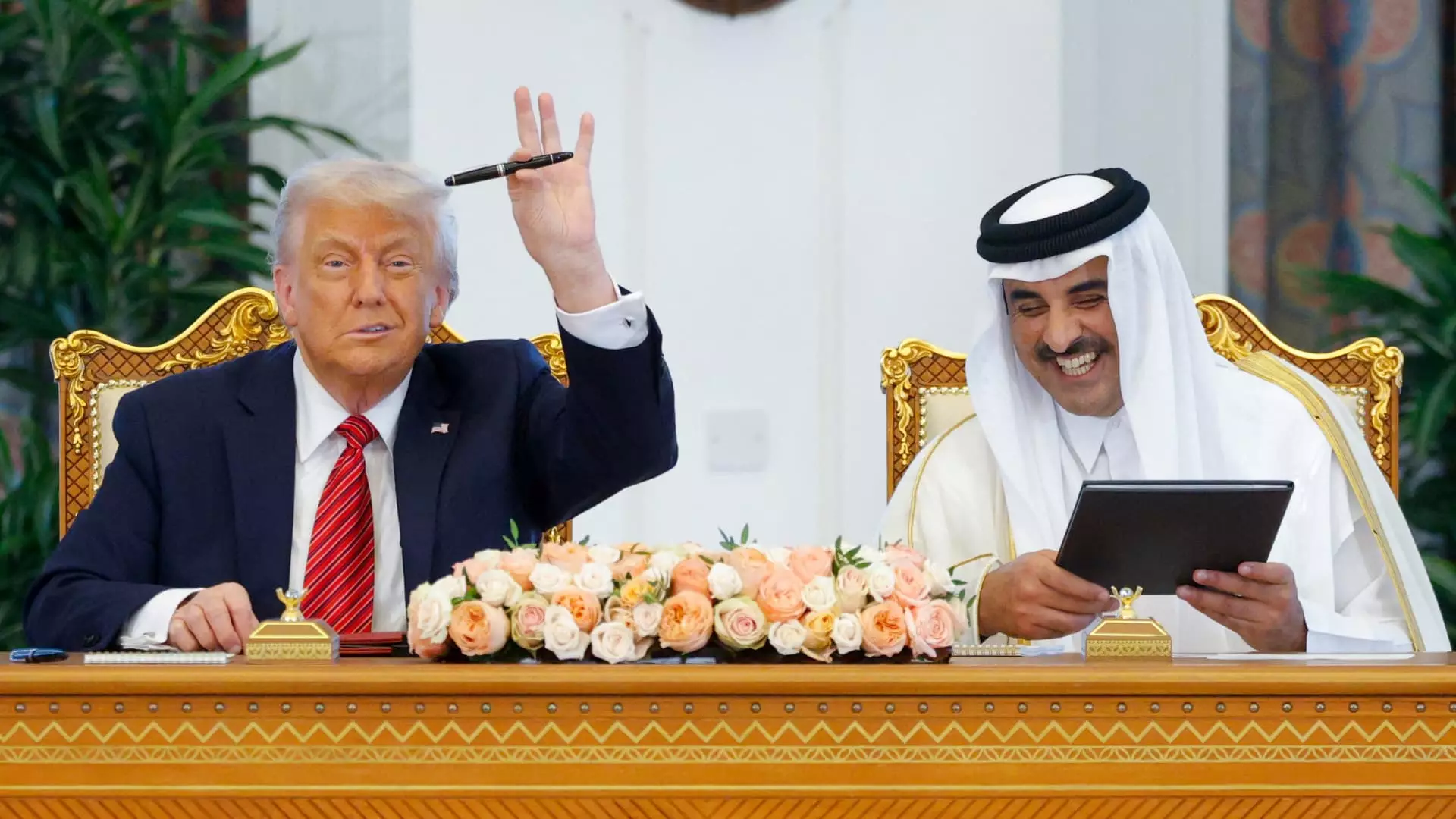The latest diplomatic flap surrounding Qatar’s alleged $400 million gift of a Boeing 747 to President Donald Trump has surfaced not merely as a quirky tale of international relations but as a flashpoint illuminating the murky waters of influence and power on the global stage. Sheikh Mohammed bin Abdulrahman al-Thani, Qatar’s Prime Minister, fervently defended the plane’s offering by framing it as a legal and transparent military transaction designed to bolster the long-standing partnership between Qatar and the United States. Yet, whether the deal is genuinely transactional or merely a veneer for deeper, more sinister motivations remains a contentious question.
By characterizing this exchange as a routine act between allies, al-Thani attempts to sidestep the ethical implications that loom over such gifts. The notion that a nation can present such lavish offerings without it sparking debates of impropriety or influence-peddling is naïve at best. In an era where public sentiment is increasingly skeptical of governmental integrity, especially around a president whose own dealings often tiptoe along the line of legitimacy, such offerings should be scrutinized rather than normalized.
Transactional Diplomacy: A Slippery Slope
The Prime Minister’s insistence that this is merely a “two-way relationship” casts a shadow over what might be an alarming trend in international relations: the blurring of lines between diplomacy and financial transactions. When a country dedicates resources to gifts aimed at influencing political alliances, we veer dangerously close to a system where loyalty becomes purchasable. It raises a pressing question: how much of the so-called partnership is based on genuine mutual respect, and how much is a transactional facade where influence-buying is the name of the game?
Democratic lawmakers are already sounding the alarm, asserting that under the Foreign Emoluments Clause of the U.S. Constitution, acquisitions of this sort are rife with ethical dilemmas. By offering such a conspicuous gift, Qatar not only tests the waters of U.S. political ethics but also dabbles in an elaborate game of poker where the stakes are high and the rules appear to shift in favor of those willing to play fast and loose. Rep. Jamie Raskin’s pointed remarks highlighting the need for congressional oversight serve as a stark reminder that while international gifts might be cloaked in grandiosity, the underlying intention often revolves around cultivating a loyal ally willing to play into foreign interests.
American Subservience or Empowerment?
It’s particularly maddening that as Democrats rally against this display of financial diplomacy, some members of the public might reasonably question the effectiveness of their resistance. While it is essential to uphold constitutional tenets and scrutinize foreign influence, the implementation of these checks and balances must also transcend mere words to ensure they translate into action. The narrative of a president receiving potentially compromising gifts while facing an already diluted ethical framework is alarming. Not only does it shine a light on Trump’s apparent comfort in sailing close to the wind, but it also underscores the critical need for a robust re-examination of what it means to serve public office with integrity.
Moreover, the rhetoric surrounding the jet, positioned as an “asset” for a future presidential library, begs the question of how far the reach of foreign influence extends into the fabric of American political and cultural life. While jokingly presented, the idea evokes the disturbing notion that we are slowly redefining public service, allowing it to pivot toward an undercurrent of personal gain.
The Dangers of Normalization
The most prominent danger here may lie in the normalization of such exchanges. If the precedential acceptance of lavish gifts becomes standard practice within international governance, we face a future where our leaders operate with an unsettling parallel set of ethical guidelines, one for official decree and another for clandestine arrangements with foreign powers. Qatar’s PR machine may spin the offer of a luxurious aircraft as benevolent cooperation, but the underlying tone resonates with a darker ambition: the art of subverting traditional diplomacy through veiled transactions.
In an increasingly polarized political landscape, where trust in governance hangs by a thread, it is the role of Congress and vigilant citizenry to treat such proclamations with the scrutiny they deserve. The moment we allow gifts that confer power and influence within the bounds of political alliances to go unchecked is the moment democracy faces a perilous decline. Our focus as citizens should remain sharply tuned to transforming this narrative from one of acceptable diplomacy to a vigilant quest for integrity and accountability in our leadership.


Leave a Reply